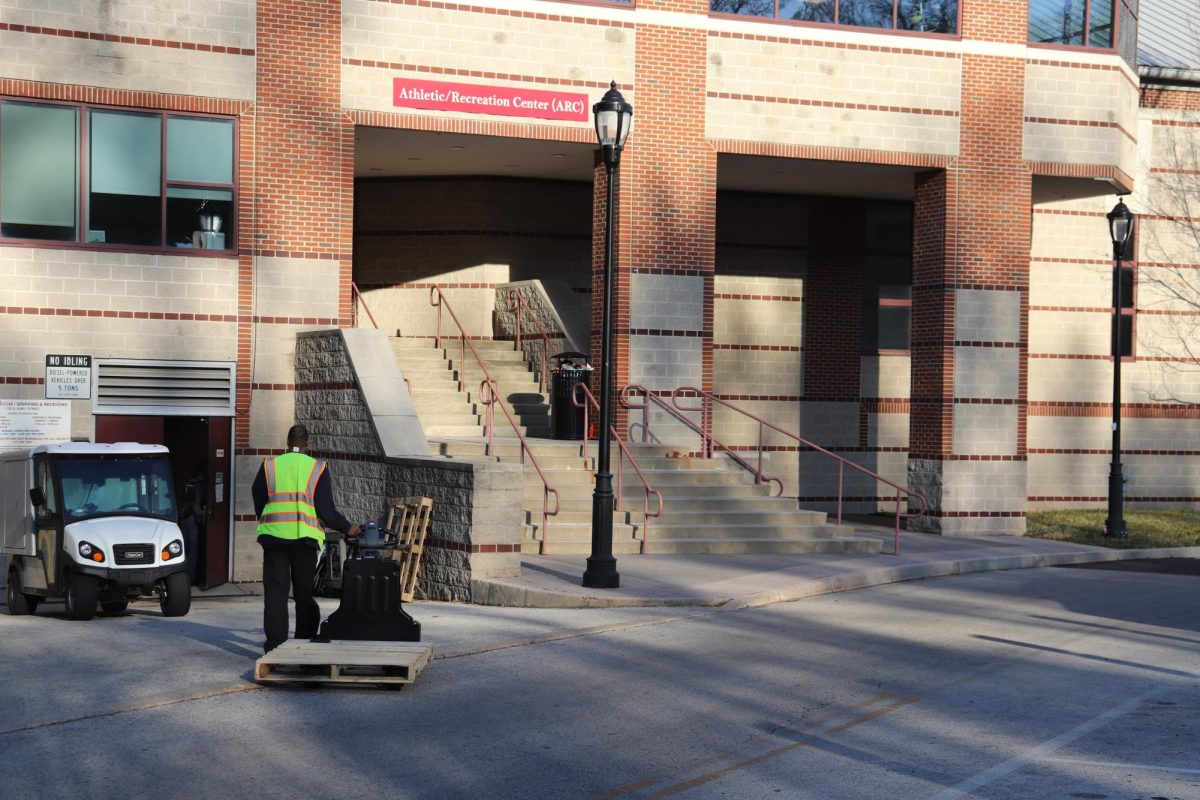In the first week of November, average daily high temperatures in the Philadelphia area were almost 10 degrees above normal, reaching a high of 81 degrees Fahrenheit Nov. 1. Indoor temperatures in the Athletic/Recreation Center (ARC) at the University City campus felt like the mid 80s, according to staff at the Writing Center’s UCity location.
Carly Robinson ’26, a UCity Writing Center tutor, who was working on the evening of Nov. 7, said she and her colleagues contacted their supervisor and got permission to close the center and HawkHub, which is also in the ARC, because of the uncomfortable heat.
“We did not have any [appointments] on the schedule on the night of the closure,” Robinson said. “On the other hand, HawkHub is just walk-ins. And people certainly could have missed out on that resource the night we closed.”
Ken Ogawa, associate vice president of administrative services, wrote in an email to The Hawk that in response to the high temperatures, Facilities turned off boilers “to mitigate higher interior temperatures” during the day, and opened air dampers at night to bring in cool air when temperatures dropped.
“In many buildings, including the ARC, Bellarmine, and Mandeville, Facilities is able to monitor and change temperature setpoints remotely,” Ogawa said. “However, once the heat is turned on and air conditioning is turned off, there are limited options to further cool a space.”
Ogawa said air conditioning and heating in the ARC comes from a central utility plant.
“When we switch from air conditioning to heating, the underground piping carrying the chilled water around the entire campus is drained,” Ogawa said. “To restore air conditioning would require over a week to refill the system and manually transfer systems. This must be done in all buildings connected to the central utility plant and not just the ARC.”
Several buildings on Hawk Hill campus were also experiencing high inside temperatures.
Ogawa said because buildings have different HVAC designs once the transition begins, it cannot be switched on and off easily.
“For Bellarmine and Merion Hall, hot or cold water is distributed to the HVAC system components and rooms via a common set of pipes. That is, at any given time, we can only provide hot or cold water, not both,” Ogawa said. “Converting between heating and cooling typically takes 3-4 days and requires Facilities staff to turn off the heating, wait for the system to cool off, realign the piping, and restart the chillers.”
Students in buildings on both campuses did their best to cope with the high indoor temperatures.
Janyah Sessoms ’25 said she found it hard to focus during her 75-minute class in Bellarmine Hall.
“I noticed myself stopping every two seconds to fan myself,” Sessoms said. “All I could feel [was] the classroom getting warmer and warmer the longer we sat there.”
According to Ogawa, St. Joe’s follows the City of Philadelphia code that requires heat to be available when outside temperatures drop to below 60F.
“Due to the increased volatility of weather, we wait until we have three or more days with forecast low temperatures of 60 or lower and a trend indicating that will continue,” Ogawa said.
According to the World Meteorological Organization, 2024 is on track to being the hottest year in recorded history, breaking the record set in 2023. October and November were the warmest on record for Philadelphia.
Clint Springer, Ph.D., associate professor of biology, director of the Institute for Environmental Stewardship and director of the Barnes Arboretum, said the high temperatures are likely due to warming trends on the earth’s surface.
“That’s the sea surface and land surface,” Springer said. “Atmospheric temperatures will rise, too, but really the surface temperatures are what’s important, and coupled with that are also regional shifts and precipitation patterns.”
Springer said the concerns about higher temperatures go deeper than just the impact on the environment.
“Heat-related illnesses go up by about 500% when the summer nighttime temperature stays above 75 degrees,” Springer said. “So that’s an enormous problem for Philly, a city that has a relatively impoverished population that lacks access to things like air conditioned spaces. Young people, infants and children and senior citizens are especially susceptible to heat-related illnesses, so it’s a public health crisis, too.”
Ogawa said that Facilities will continue to monitor building temperatures and would work with key stakeholders to mitigate any overheating situations.
















































